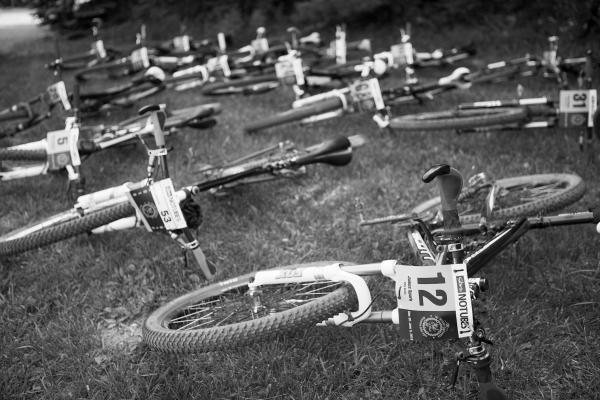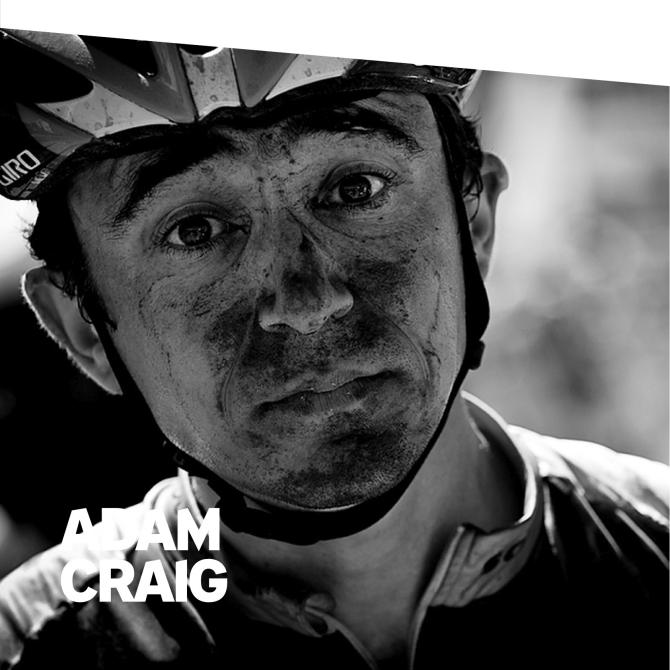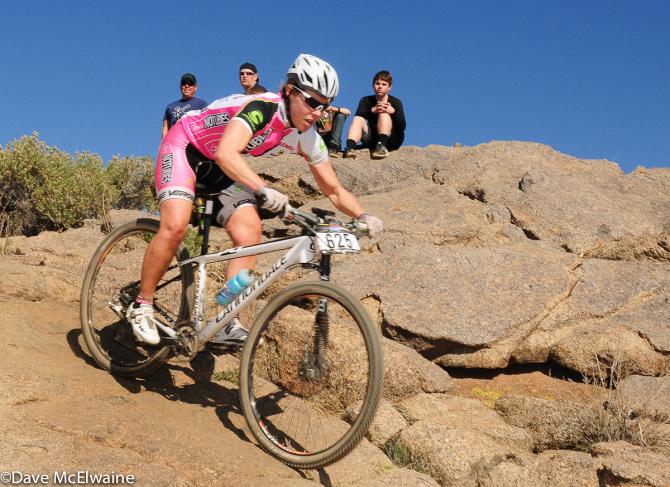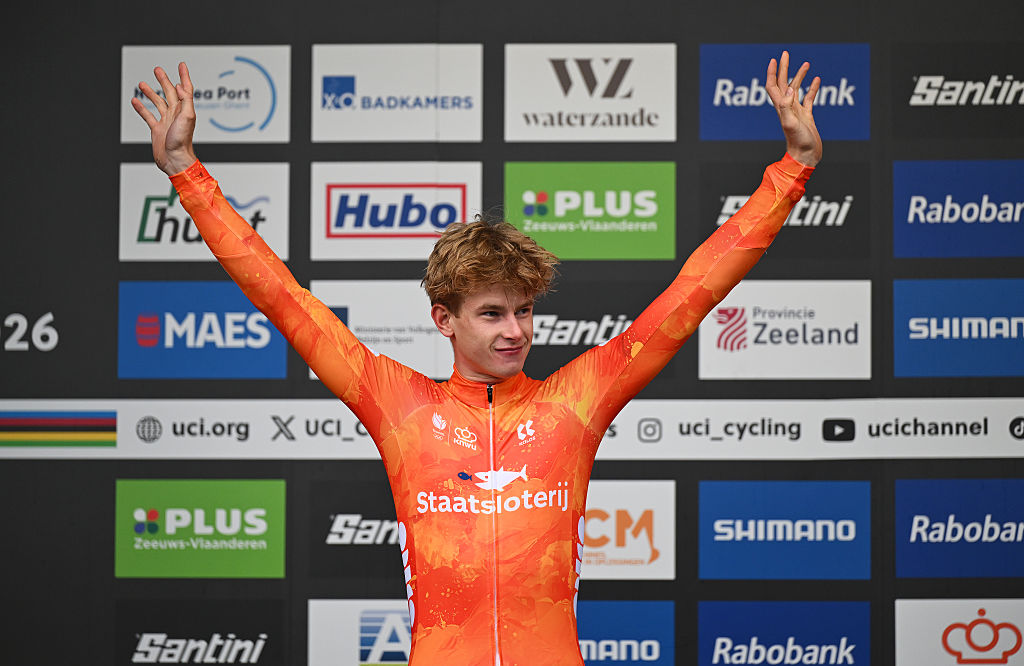Enforcement of UCI rules limits racing for top mountain bikers in USA
USA Cycling confirms it forbid pros on UCI teams from racing non-sanctioned events



After USA Cycling notified UCI-registered teams that during 2013 it will be enforcing UCI rules prohibiting riders from competing in non-sanctioned races, some mountain bike pros will have fewer racing opportunities. While the rules are not new, a stricter enforcement of them could significantly affect the sport of mountain biking and several of its established and emerging sub-disciplines by curtailing racing opportunities for some pros.
"It is UCI's expectation that we, and all national federations, enforce the UCI participation rules for all disciplines, not just mountain bike," said USA Cycling Director of Communications Bill Kellick to Cyclingnews when asked about the federation's intentions for the season just underway.
In mountain bike racing, many grassroots and some major events are unsanctioned by USA Cycling and the UCI. Since the beginning of mountain biking, it has been customary for elite riders on UCI-registered teams to participate in such events, especially in between World Cup, national series races and other sanctioned races. The racers may be doing so to make money and get results at high profile contests like the Whiskey 50 and the 24 hours of Old Pueblo, or they may just want to support a local race back home. However, according to the rules, doing so in 2013 will bring punishment in the form of a monetary fine and/or suspension from competition in sanctioned races. [Correction: The Leadville 100 was originally listed in this article as an unsanctioned race, but it has been sanctioned by USA Cycling since prior to when it was purchased by Life Time Fitness in 2010.]
USA Cycling clarified that the rule only applies to some mountain bike pros, not all. "It is important to note that the only riders that are affected are riders that have registered with the UCI on a UCI team. This does not affect mountain bike pro riders who are NOT on UCI-registered teams," said Kellick, who also confirmed that the mountain bike sub-disciplines of cross country, downhill, enduro, marathon and stage races are covered by the rules.
"The UCI recently confirmed that enduros are included in the rule, and they expect all enduros to sanction with their national federation," said Kellick to Cyclingnews. "Yes, we [at USA Cycling] do recognize enduros in our new rulebook and we continue to sanction these type of events as we have in past years."
When asked when and why was the rules were put into place and how they might benefit cycling or USAC, Kellick said, "The rule has been in the UCI rulebook for over 10 years. We started enforcing it at the request of the UCI on the road side because the UCI took notice of certain events in our country that were frequented by top professionals and they began to question why we were allowing our UCI licensed team riders to compete in unsanctioned events."
Rule refresher on forbidden races
The latest race content, interviews, features, reviews and expert buying guides, direct to your inbox!
UCI general regulations include a section called "Forbidden Races". Within it, Rule 1.2.019 states, "No licence holder may participate in an event that has not been included on a national, continental or world calendar or that has not been recognised by a national federation, a continental confederation or the UCI."
It sounds like there is some room to maneuver with this clause: "A national federation may grant special exceptions for races or particular events run in its own country."
However, USA Cycling clarified to Cyclingnews, "No exceptions will be granted per the last line of rule 1.2.019 for any event that offers awards based on relative performance."
Rule 1.2.020 states "Licence holders may not participate in activities organised by a national federation that has been suspended, save in application of article 18.2 of the UCI constitution."
And the punishment for breaking the above rules is outlined in Rule 1.2.021: "Breaches of articles 1.2.019 or 1.2.020 shall render the licence holder liable to one month's suspension and a fine of CHF 50 to 100."
While the monetary fine is nominal to a well supported pro, a suspension could keep him or her out of important major races like World Cups, Worlds or Nationals.
USA Cycling confirmed that it did fine a few athletes, both road and mountain bike, in 2012 for violating the UCI forbidden races rules.
What USAC told the teams
Rumors have been swirling around the cycling world in the past few months about the rules and whether they would be enforced or changed in any way to accommodate the popularity of many non-sanctioned competitive mountain bike events.
In a February 8th letter, USA Cycling Technical Director Shawn Farrell communicated the USA Cycling stance on the UCI's Forbidden Races rules to UCI Team Managers. The letter many not have brought the news for which some top pros and teams were hoping, but it was very clear about the rules and what will happen in 2013 to those who do not follow the rules.
"There has been a lot of discussion over the past few years regarding UCI rule 1.2.019 - 1.2.021 that defines in which events UCI licensed riders can compete. The UCI has confirmed its expectation that USA Cycling should monitor and enforce this UCI rule. For 2013, any UCI licensed riders who are on the roster of a UCI-registered team (regardless of discipline) should expect enforcement of rules 1.2.019, 1.2.020 and 1.2.021, as shown below:
How the rules could affect mountain biking
Many American mountain bike races like the Leadville 100, National Ultra Endurance (NUE) Series rounds, the Whiskey 50 and the Trans-Sylvania Epic and Breck Epic mountain bike stage races are not USAC-sanctioned events. The same is true for many races in the newly emerging enduro discipline, especially with the UCI only recently saying it will recognize the enduro discipline, although it won't maintain an official calendar until 2014.
The forbidden races rules affect only elite riders on UCI teams, who cannot race unsanctioned events without fear of punishment. That means World Cup racers like Georgia Gould can't decided to race the Leadville 100 or Stephen Ettinger can't test his endurance potential in a mountain bike stage race like the Trans-Sylvania Epic, a race his BMC team sponsor is also backing.
Some of those events pay very well and so some argue the UCI rules were put in place to keep the pros - as created by the UCI and its system of sanctioned events - from straying, with their fame and fortunes, into other, possibly greener pastures.
Giant Factory Off-Road Team Manager, Joe Staub gave an opinion which Cyclingnews heard from many teams and riders in the industry. "I feel that this rule is out of step with the nature of mountain bike events in the newly growing discipline of enduro and counter productive to many proven, sustainable long distance events (like the Whiskey 50 or Leadville 100 or Crankworx BC)."
"Many of these events have built up their momentum by hosting top level professional riders, many of whom are tied to a UCI Team. I think that denying these events access to the sports' heroes by leveraging fines and suspensions to top level professionals, diminishes appeal for some and more importantly takes riders away from direct interaction with the general public; in our effort to grow the brand via racing/sports marketing, having athletes accessible to the public is a cornerstone," said Staub.
"To say to any of these event promoters that inscribing to the UCI's model, by becoming sanctioned, is the only way to allow such athletes to attend and compete undermines truly legitimate efforts to provide critical depth to the calendar of off road racing events in general."
Promoters of such non-sanctioned events are indeed frustrated by the rule and some view it as negatively impacting their livelihood. A big-name pro attending their races can help attract media coverage of the event, which can in turn draw more event sponsorship and more non-pros to register.
"It's a real shame that USAC is not making some exceptions," said Mike Kuhn, who is the co-promoter of the Trans-Sylvania Epic stage race, to Cyclingnews. "I think our situation with BMC is a perfect example of where that could work. We have an agreement with BMC, which sponsors World Cup athletes and UCI-sanctioned races [such as the BMC Cup in Switzerland]." Kuhn notes that therefore it would be logical for BMC to send some of its riders to the event like the Trans-Sylvania Epic.
Fortunately for Kuhn and other promoters of non-sanctioned races, the rule does not affect riders who are not on UCI-registered teams, so they will still be able to attend without consequences.
Unintended consequences
The pool of such unaffected riders may be a bit bigger now as for 2013, some teams have decided not to register as UCI teams or are maintaining a separate UCI and non-UCI registered teams and rosters. An example is the Trek Factory Team which supports World Cup level cross country racers such as Dan McConnell, Annie Last and Rebecca Henderson. Separately, Trek is also still supporting former World Cup racers Heather Irmiger and Jeremy Horgan-Kobelski, who have since retired from the World Cup circuit and will focus on enduros.
The all-new for 2013 Enduro World Series, run by Chris Ball, a former UCI Technical delegate, has created its very own governing body with rules and membership, and it is completely independent from the UCI.
While the rule seems unlikely to change what many pros were going to do anyway, it does stand to affect some big name racers. So while top UCI ranked pros might be so busy focusing on UCI-sanctioned events that they would not take the time or use the energy to race outside of the UCI system, there are some racers who might have liked to broaden their calendar of races if allowed.
Think of all the years that Adam Craig raced as the top American on the elite men's World Cup circuit while also dropping in on events like the Downieville Classic or enduros and super Ds in the northwest. Or think of former World Cup racers and former world champion Christoph Sauser, who raced the World Cup last year and also raced Leadville.
Giant Factory Off-Road Team Manager Joe Staub told Cyclingnews how his team is handling the situation. "The enforcement of this rule (to the best of our knowledge) will not apply to several riders of the Giant Factory Off-Road Team. Adam Craig, Carl Decker, Kelli Emmett, and Josh Carlson, who are part of our Factory Off-Road Team, and will not be registered into an official UCI Team."
"Other riders on the Factory Off-Road Team, such as Danny Hart, Andrew Neethling and Marcelo Gutierrez will be registered to our UCI Elite DH Team and since this rule will apply to them, they will only race at events that are clearly not going to expose them to fines or sanctions from any national federation. With respect the the Giant Pro XC team riders, who will also be registered to a UCI Elite Team, the rule does also apply and they will compete primarily at the UCI World Cup Events."
Mountain bike pros like Sonya Looney and others who race endurance events but don't chase UCI points or belong to a UCI-registered team can continue to race their preferred mix of sanctioned and unsanctioned events.
"The enforcement of the rules is a concern, but not as much of a concern as it was due to the attitude of the pros," said Kuhn, who perceives such enforcement of the rules in part as a way to force non-USAC sanctioned races to come under the USAC umbrella.
"Some of our races have existed for 10 years and done well. We haven't needed USAC so far," said Kuhn. "That doesn't mean I wouldn't consider joining with USA Cycling. If USA Cycling want us to join them, they have to offer us promoters something and give us the incentive to do so."
"I think the UCI has missed the boat on enduro, stage and endurance racing," said Kuhn.
Other well known riders, like Amanda Carey (Stan's NoTubes Elite Women's Team), will also not be personally hindered by the ruling although she will miss out on the chance to sometimes compete against other elite women who are on UCI-registered teams at major non-sanctioned events.
"I haven't heard anything about the rules specifically," said Carey, who as a member of a non-UCI-registered team was unaware of the letter from USA Cycling when asked. "I thought it was a rule that only affects UCI registered teams."
She did, however, note an example of how the enforcement of such rules could negatively impact the sport. "We want people like Georgia Gould to come to local races. It inspires people," said Carey. "The riders interact with the juniors, and it does positive things for the sport. Our sport is not big enough to have a rule like that in place. I don't see an upside to that rule - especially in mountain biking."
Sue George is an editor at Cyclingnews. She coordinates all of the site's mountain bike race coverage and assists with the road, 'cross and track coverage.
